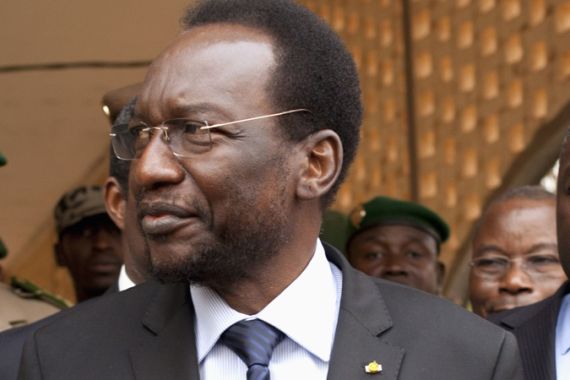Profile: Mali’s Dioncounda Traore
Interim president is a former teacher and trade unionist and held the post of parliamentary speaker since 2007.

Dioncounda Traore, the head of Mali’s national assembly who has taken over as the country’s interim leader, underwent military training for three years, one of them as a paratrooper, according to his official biography.
He speaks French, Russian, English and Spanish, along with the local Bambara and Soninke languages. His aides describe him as someone “very keen on working toward consensus” and “a man of the people”.
A former teacher, the 70-year-old Traore was born in Kati, near Bamako, the Malian capital. He is married and has seven children.
Traore studied mathematics in the former Soviet Union and Algeria, before being awarded a doctorate in France.
“I’m a mathematician. I was a trade unionist and I remain so in spirit,” he told the AFP news agency.
His remarks came after Amadou Toumane Toure, the president whose government was toppled by junior military officers on March 22, officially resigned, paving the way for army leaders to step down and for a return to democratic rule.
Traore worked with trade unions and later entered politics, serving most recently as the speaker of parliament.
“For a politician, the end justifies the means, but not for a political leader,” said Traore, who vows to defend “solidarity” and “justice”.
After 1992, he occupied several ministerial portfolios, including head of the civil service, defence, and foreign affairs.
Timing questioned
Traore was elected to parliament in 1997, and was to have run in the presidential election, originally scheduled for April 29, as the candidate for the Alliance for Democracy in Mali-African Party for Solidarity and Justice (ADEMA-PASJ).
His campaign posters can still be seen around Bamako, but Traore left the country following the March 22 military coup and only returned recently after West African leaders forced Mali’s coup leaders to renounce power.
“Dioncounda only dared return once things had calmed down,” said Abdoulaye Camara, a young man who said he cannot understand why Traore did not speak out “when the country was burning”.
“He neither spoke in his own name, nor in that of parliament, nor in that of ADEMA. For me, that’s hardly the attitude of a statesman,” Camara added.
‘Pragmatic approach’
Sporting a light beard and thinly-mounted glasses, Traore is tasked with organising elections, if possible within 40 days, according to the agreement between African leaders and mutinous soldiers who carried out the coup.
Traore has held the job of parliamentary speaker since 2007, and has been leader of the ADEMA-PASJ since 2000.
He also headed the Alliance for Democracy and Progress, an umbrella organisation for parties that backed Toure’s re-election in 2007.